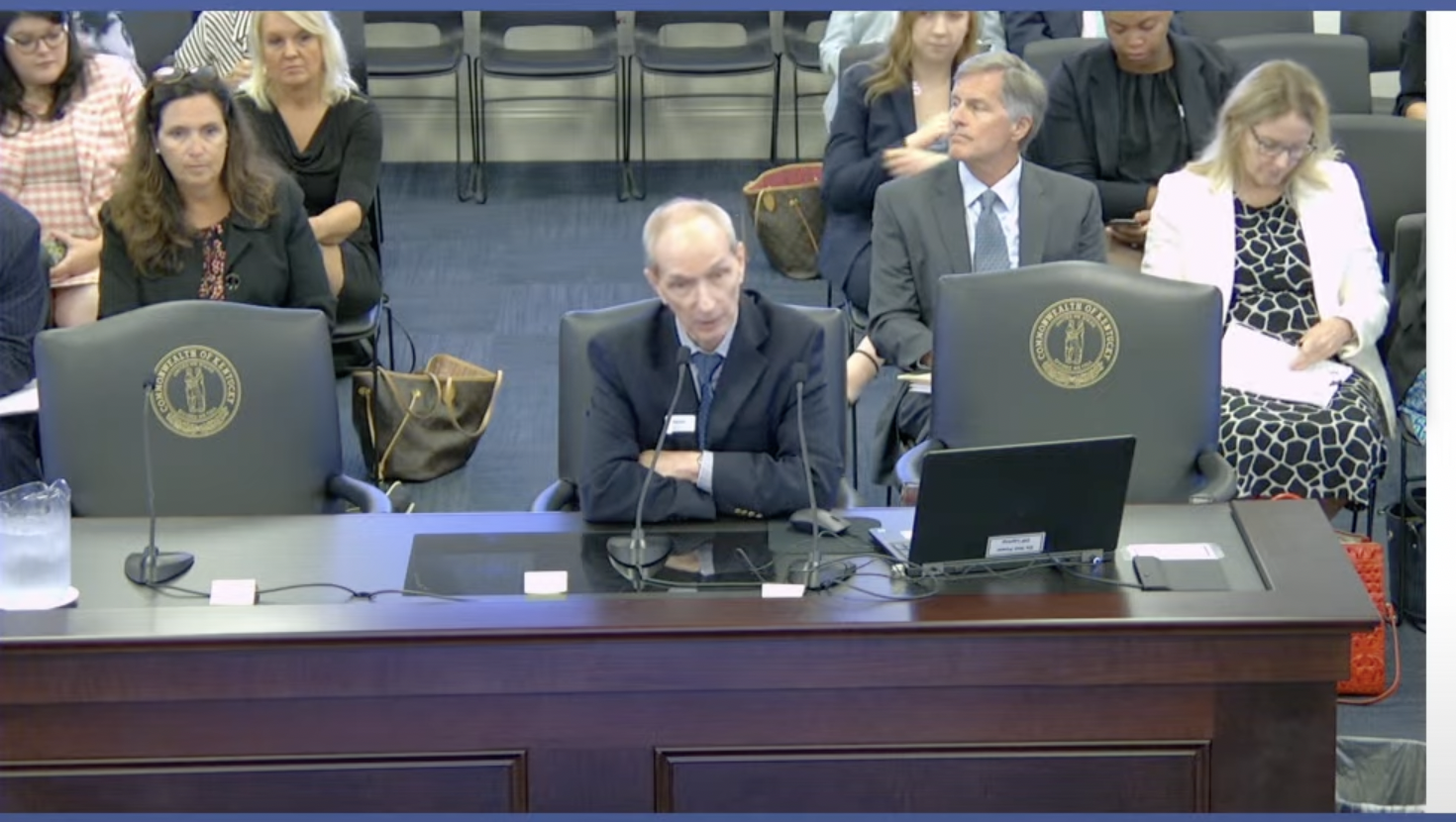Economist urges Kentucky lawmakers to end certificate of need law as hospitals warn against repeal

by Sarah Ladd, Kentucky Lantern
The CON task force is seeking public input, which is due by Sept. 1. To submit a statement in writing about certificate of need, email DeeAnn Wenk at deeann.wenk@lrc.ky.gov.
FRANKFORT – Kentucky would be “well served by the improved access to health care” if it were to repeal certificate of need laws, a retired economics professor told a legislative task force charged with examining the state’s CON structure on Monday.
Professor Emeritus John Garen, who worked at the University of Kentucky but presented his evaluations of the state’s CON laws as an independent researcher, told lawmakers that “the arguments made to justify certificate of need do not stand up to careful examination.”
“We should not have certificate of need on health care services in general,” Garen said.
The certificate of need requirement mandates regulatory mechanisms for approving major capital expenditures and projects for certain health care facilities, according to the National Conference of State Legislatures.
Sometimes called the “competitor’s veto,” 35 states and Washington D.C. had such laws as of December 2021.
CON laws do not reduce health care costs in general or improve quality care to underserved populations, Garen told lawmakers.
On the other hand, organizations including the Kentucky Association of Health Care Facilities, Kentucky Home Care Association and the Kentucky Hospital Association previously testified before the same task force that removing the CON review process would neither lower the cost of health care nor improve quality of care.
Proponents of keeping Kentucky’s CON rules in place argue that should they be repealed, competitors popping up would take away revenue-producing patients from hospitals, forcing closures or discontinuation of some services.
Sen. Stephen Meredith, R-Leitchfield, said Kentucky can’t easily be compared to other places and must also be examined outside of the “average.”
“If we relied on ‘average,’ no one would ever drown in the Rio Grande River, because in the summertime, the average depth is three foot,” said Meredith, who is a retired hospital CEO. “Kentucky is not average. We get a lot of outlying situations, particularly for the poverty that we have in rural Kentucky, and even some of our urban areas have suffered the same problems.”
Representatives from Northern Kentucky’s St. Elizabeth Healthcare also testified Monday, saying they support modernization of CON laws but not an outright repeal.
Mark Guilfoyle, an attorney with the Louisville firm DBL Law, who spoke alongside St. Elizabeth’s Senior Vice President & Chief Strategy Officer Sarah Giolando, said “certificate of need provides significant benefits,” such as access to care in rural areas.
Guilfoyle said the certificate of need law also reduces the need for more tax revenue for emergency medical services and incentivizes providers to serve disadvantaged patients and areas.
The next task force meeting is September 18.
The CON task force is seeking public input, which is due by Sept. 1. To submit a statement in writing about certificate of need, email DeeAnn Wenk at deeann.wenk@lrc.ky.gov.
Photo: Professor Emeritus John Garen told lawmakers that “the arguments made to justify certificate of need do not stand up to careful examination.” (LRC Screenshot)
Recommended Posts

2024 Kids Count Kentucky Data Book released with new County Data Dashboard
Mon, November 25, 2024

Is it the flu or Covid? New at-home tests can test for both at the same time
Sun, November 24, 2024

AG Coleman joins 30 states to urge Congress to pass internet protections for youth
Sun, November 24, 2024